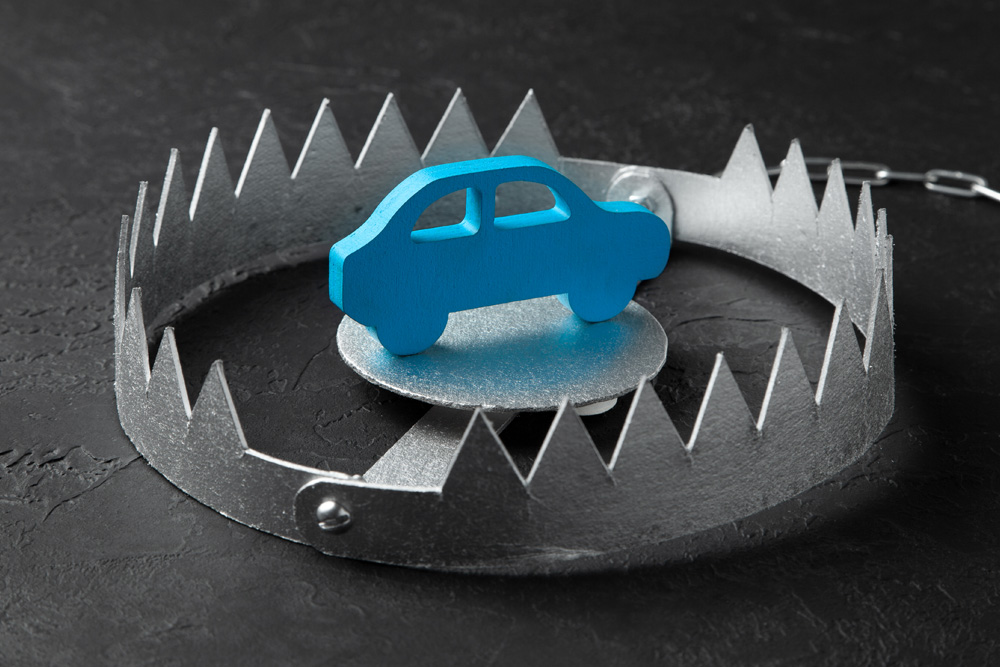S h a r e
Tax and timings on your next fleet car


Posted by
Martin Brown
August 2019
If you’re coming up to renewal of your company car, then here’s a tip: choose an electric car.
You’ll pay no tax in 2020/21.
BIK 0 – 1 You.
In fact, if you’re a fleet manager, you should be encouraging drivers into an electric car – there’s no Class 1A NIC payments in 2020/21. Saves the company money, too.
OK, so perhaps that’s a bit glib on my part. It won’t be that easy.
I do realise there are other considerations when it comes to choosing an electric vehicle. But surely charging points can’t be one of them – there are more EV charging points in Scotland (1,000) than there are fuel filling stations.
So you have more chance of running out of fuel in a diesel or petrol company car than running out of electricity in an EV.
And not only in Scotland. In the UK there are now 9,199 EV charging locations compared with 8,396 fuel filling stations across the UK.
And with extended ranges on most new electric cars, the issue of range anxiety – a big push-back against choosing an EV – is no longer a truly valid excuse.
However, I also acknowledge that ticking the EV box is not quite so simple. Current availability of electric cars can be patchy; manufacturers tell me that 2020 availability will not be a problem, but that doesn’t help right now.
Then there’s the monthly cost of leasing which is higher than standard diesel fleet models, particularly for higher mileages. So there’s additional outgoings, even if the total cost of ownership can often be lower.
So if you don’t want to go electric – or simply it’s impossible to make that choice because of availability – there are some important taxation choices to make over your next car.
These are decisions that have implications for both drivers and fleet managers.
With the recently announced changes to benefit in kind company car taxation – see my previous blog Fast forward with new company car tax rules – there is a degree of disparity between drivers who are in a fleet car that is registered before April 06, 2020, and drivers who are in cars registered post that date.
That’s because company car tax has been frozen at 2020/21 rates; for cars registered post-April 06, 2020, benefit in kind is cut by two percentage points.
How does this work out?
Let’s take the ever-popular BMW 320d M Sport auto. If it is registered before April 06, 2020 it will incur BIK at the following percentage rates:
- 2019/20 – 30%
- 2020/21 – 31%
- 2021/22 – 31%
- 2022/23 – 31%
However, a driver choosing the same car post-April 06, 2020 will pay less tax until 2022/23. The figures are:
- 2020/21 – 29%
- 2021/22 – 30%
- 2022/23 – 31%
So it’s quite possible that there could be two drivers in the same vehicle in the same company fleet paying different levels of taxation – so next year the pre-2020 registered vehicle driver will pay £393 per month (40% marginal rate) compared with £368 per month for the post-2020 registered vehicle.
That could be a tricky one for a fleet manager to explain. Not only to the driver but also to the finance director as to why there are different levels of NIC payable.
Will it matter? Are the cost differences in taxation that great at £25 a month? Possibly not for a driver that wants a BMW or similar premium brand, but it’s certainly a consideration.
So a degree of planning will be required – a juggling of lease agreements.
It would, for example, be advantageous to delay a new company car change from early or mid-March 2020 to April 07, 2020, for example.
So the next seven months are going to be complex for fleet choices as the various factors – vehicle availability, taxation implications and contract timings – interplay and overlap.
But come and talk to us. We’ll walk you through this difficult fleet management terrain and make the journey as smooth as possible.
You also might like…
If you liked this article then check out our posts about similar topics
When charging an EV is as quick as refuelling with petrol
Imagine a charge for an electric car adding almost as many miles of range as a fill-up with petrol in about the same amo...
The Fleet Management MOT: 7 Key Inspection Points
You wouldn’t run a vehicle without an MOT, yet many fleets run for years without ever inspecting the company managing ...
EVs – what’s coming next in 2026
There’s seemingly no stopping the flow of new electric cars (EVs), as a greater variety of models, new entrants contin...
We do the Salary Sacrifice thinking for Mortgage Brain
The people at Mortgage Brain spend all day working on mortgage technology to help intermediaries and lenders, so when th...
First Drive: New Tiggo 8 Is A Chery Worth Picking
Why it matters The Chery Tiggo 8 is one of the most talked-about new arrivals in the UK In just four months, the brand ...
When “Good Enough” Fleet Management Stops Being Good Enough
Every year, UK organisations talk about efficiency, governance and value for money Yet behind the board reports and b...
A New Year’s Resolution for Smarter Fleet Management
Every January, businesses everywhere make the same promises: cut costs, simplify operations, do more with less But if...
2025 Wrapped: My First Year as a Fleet Alliance Appointed Representative
As 2025 draws to a close, it feels like the right time to pause, take stock, and look back on my first year as an Appoin...
Ready to make the management of your fleet more efficient?
Request a call back
